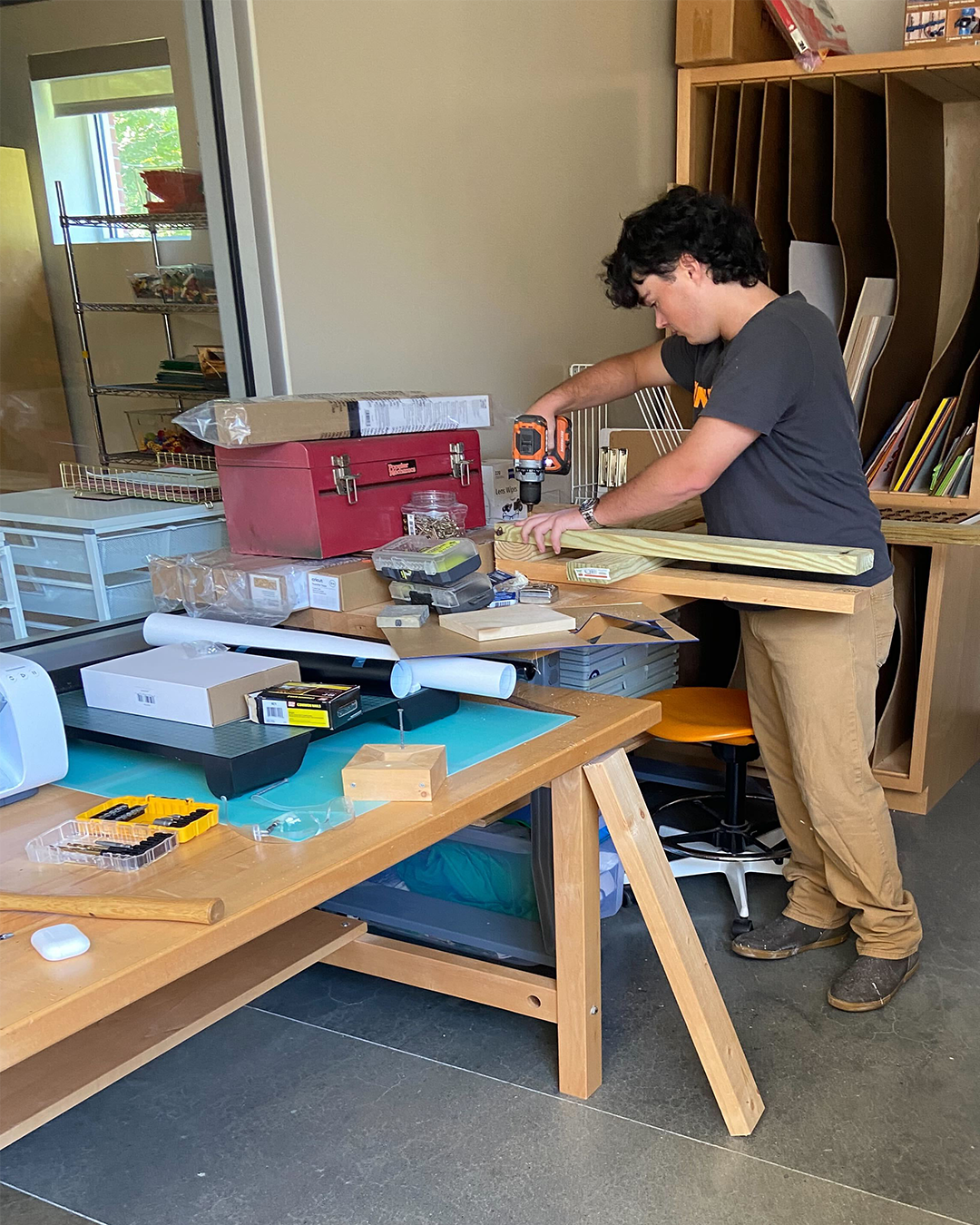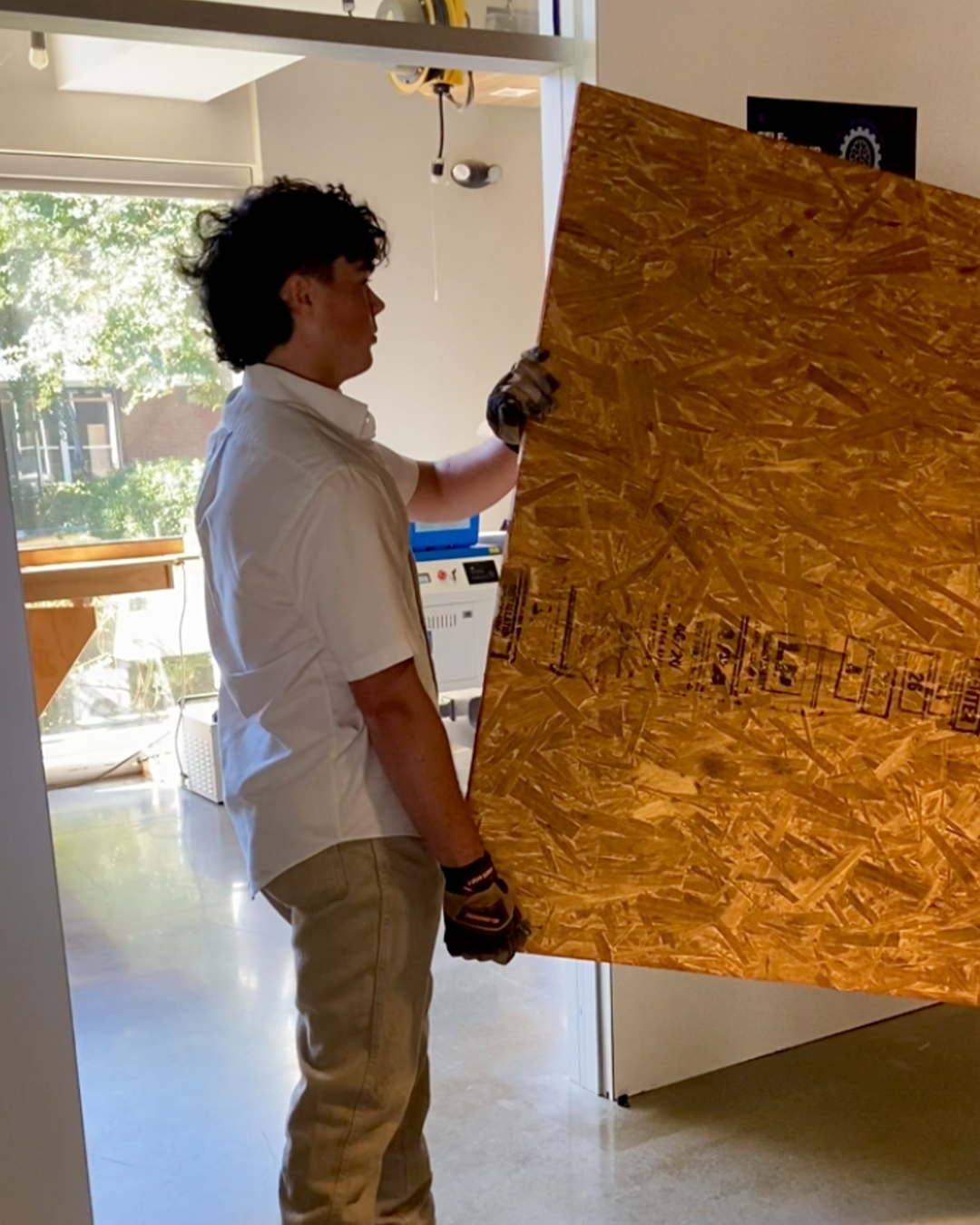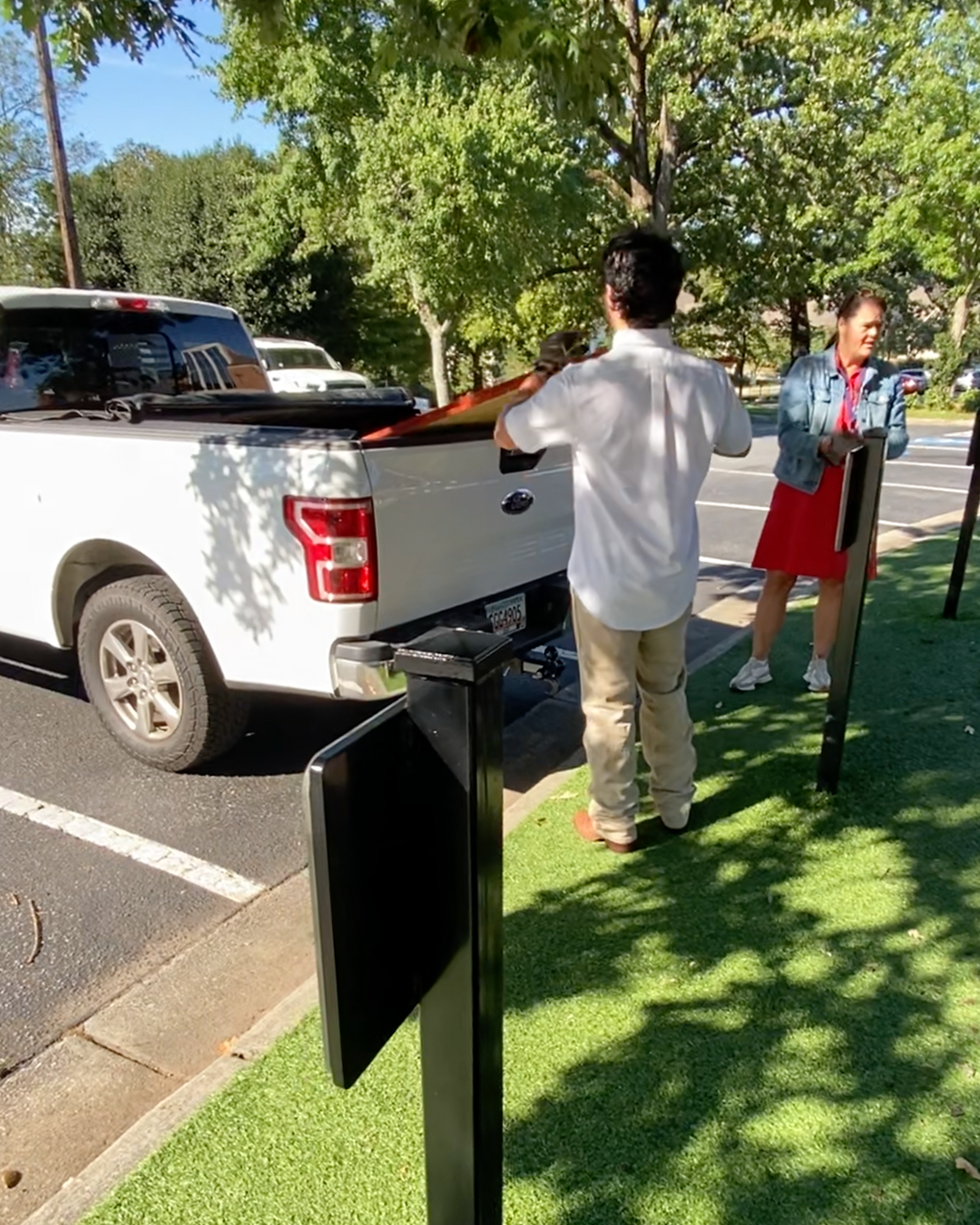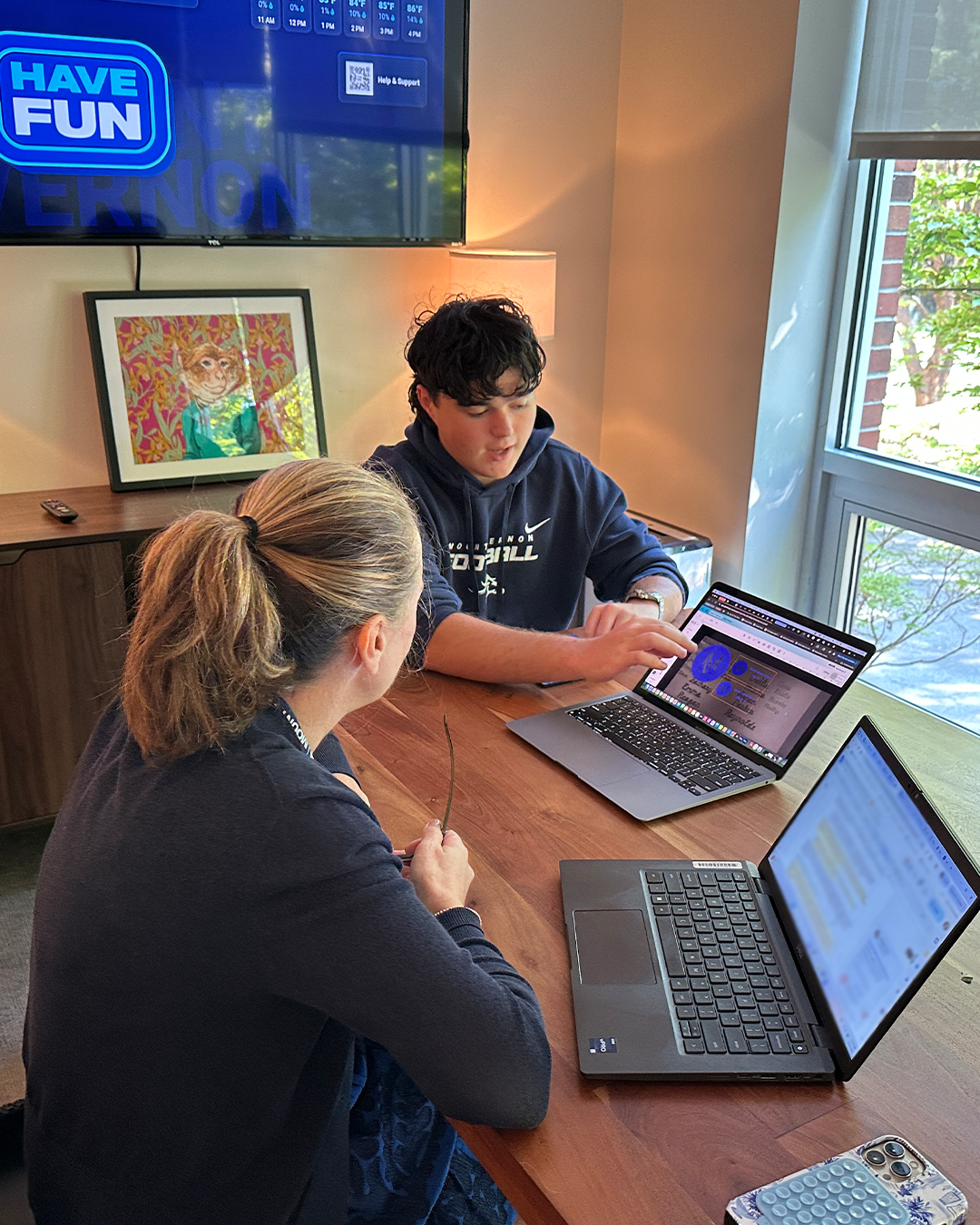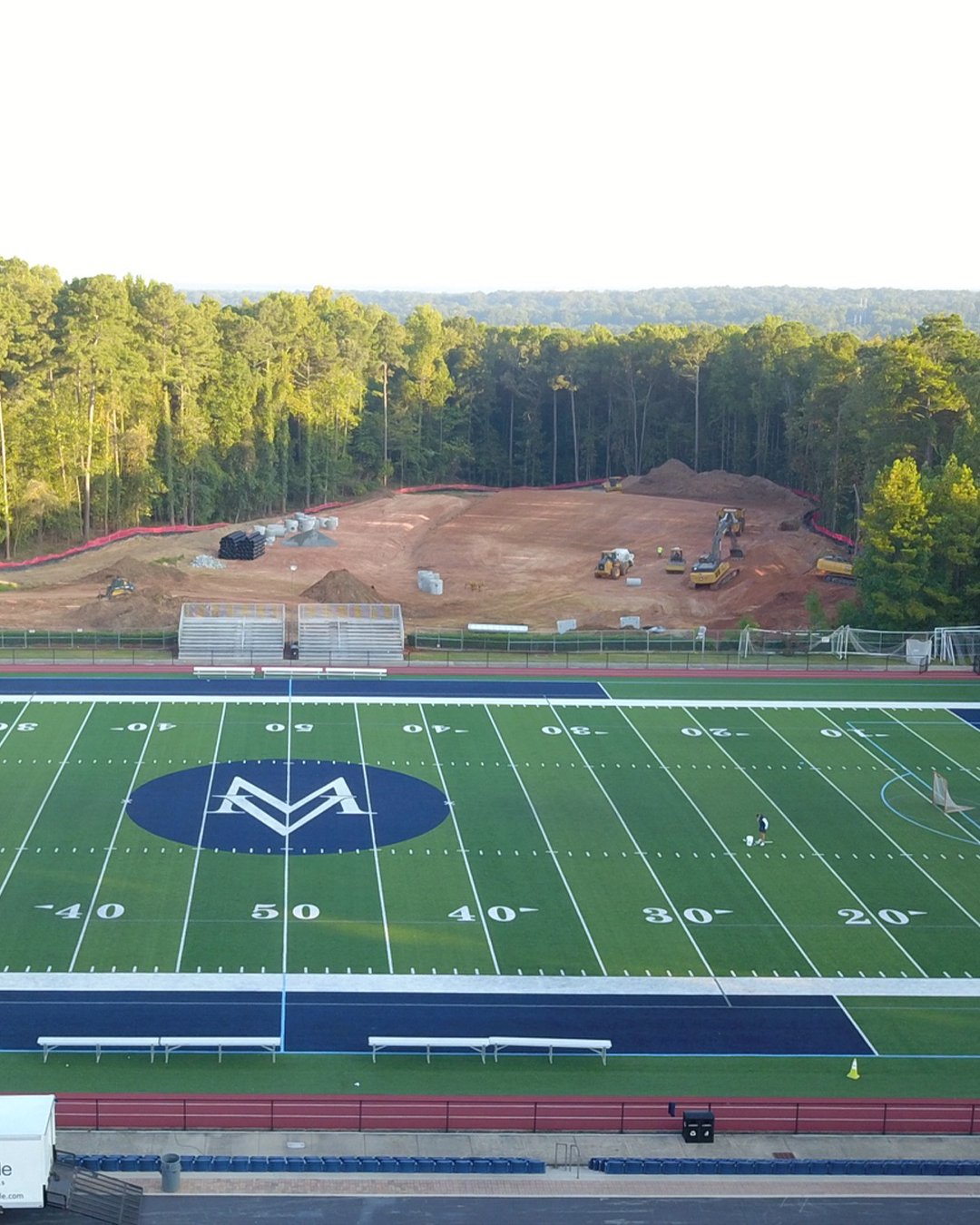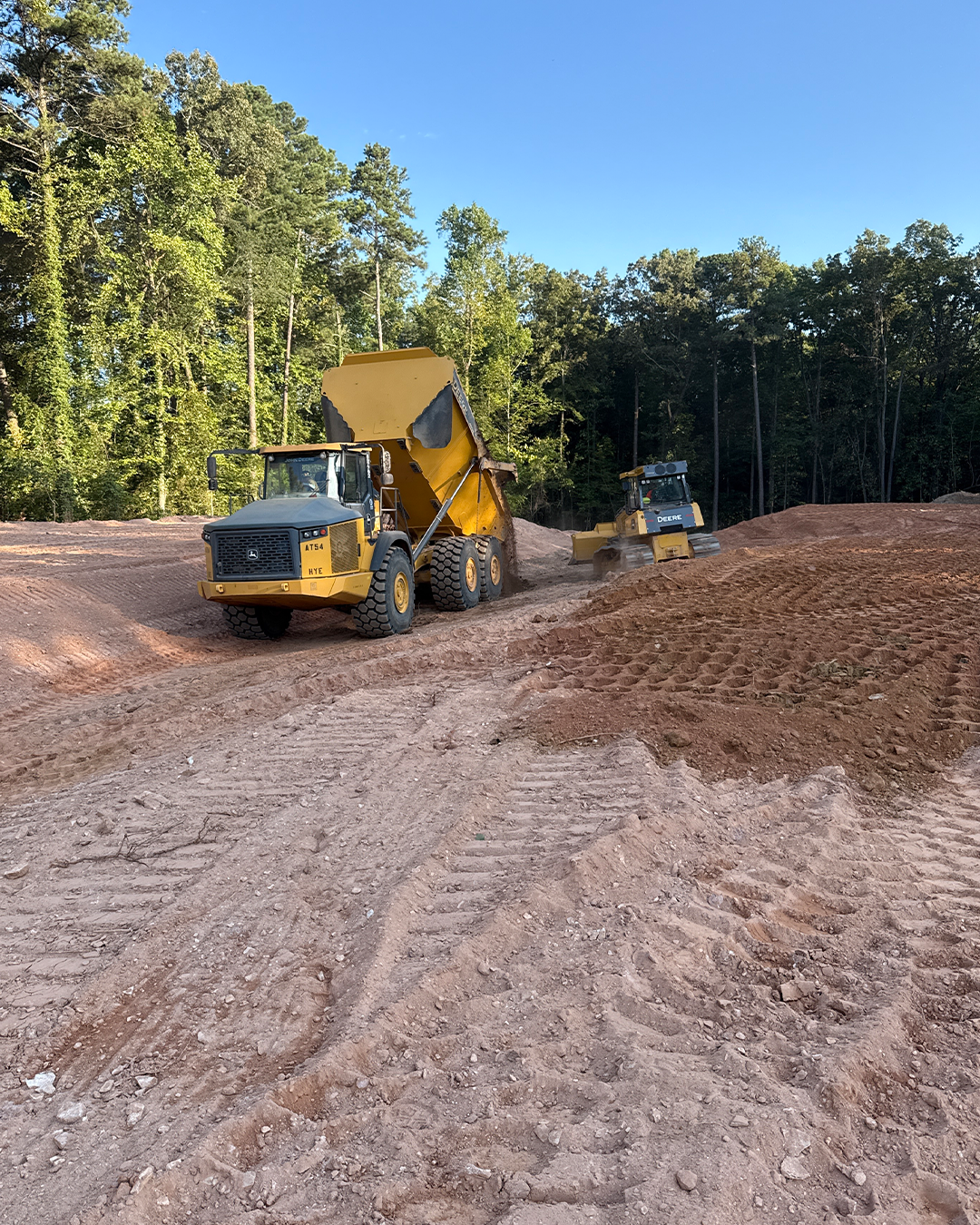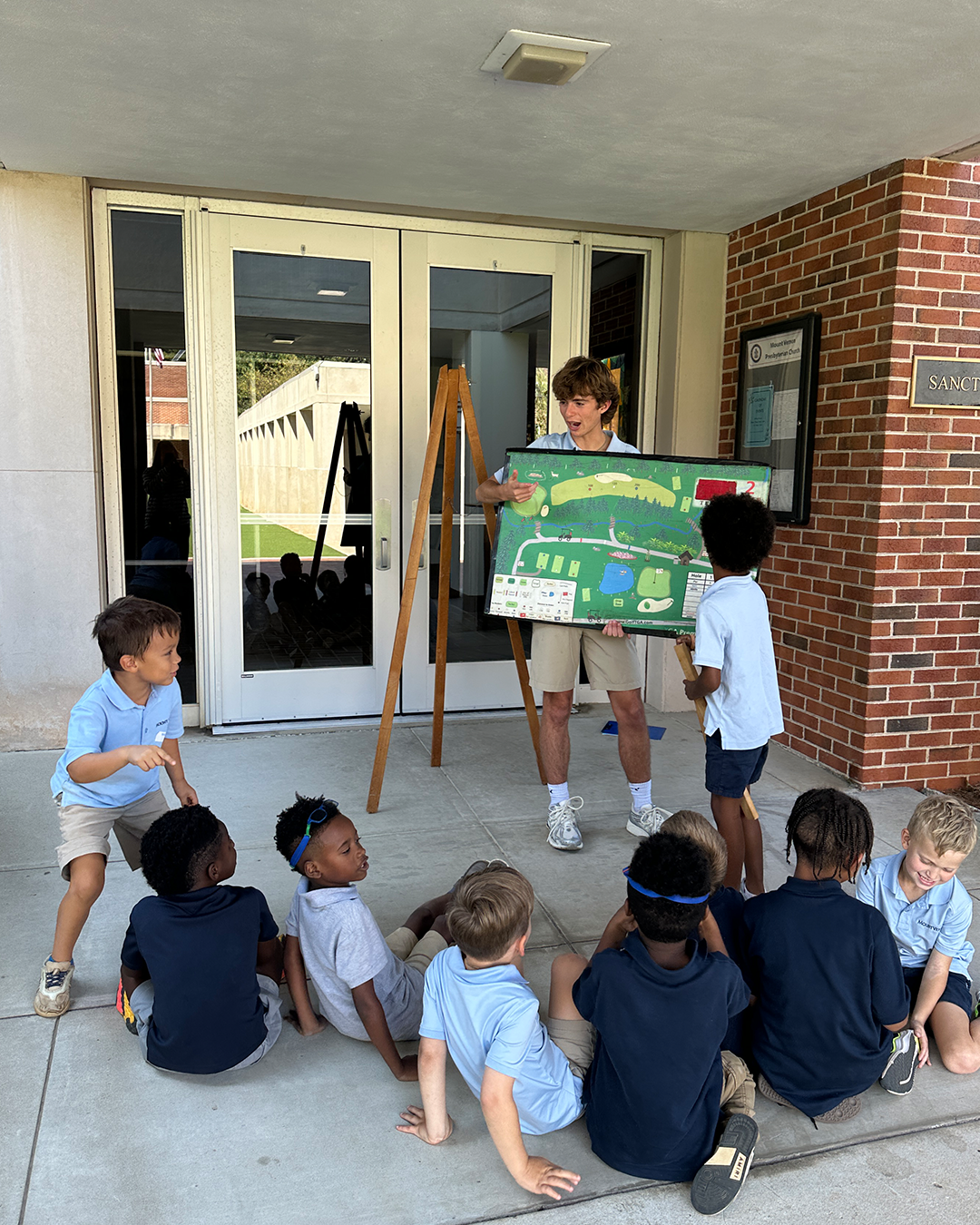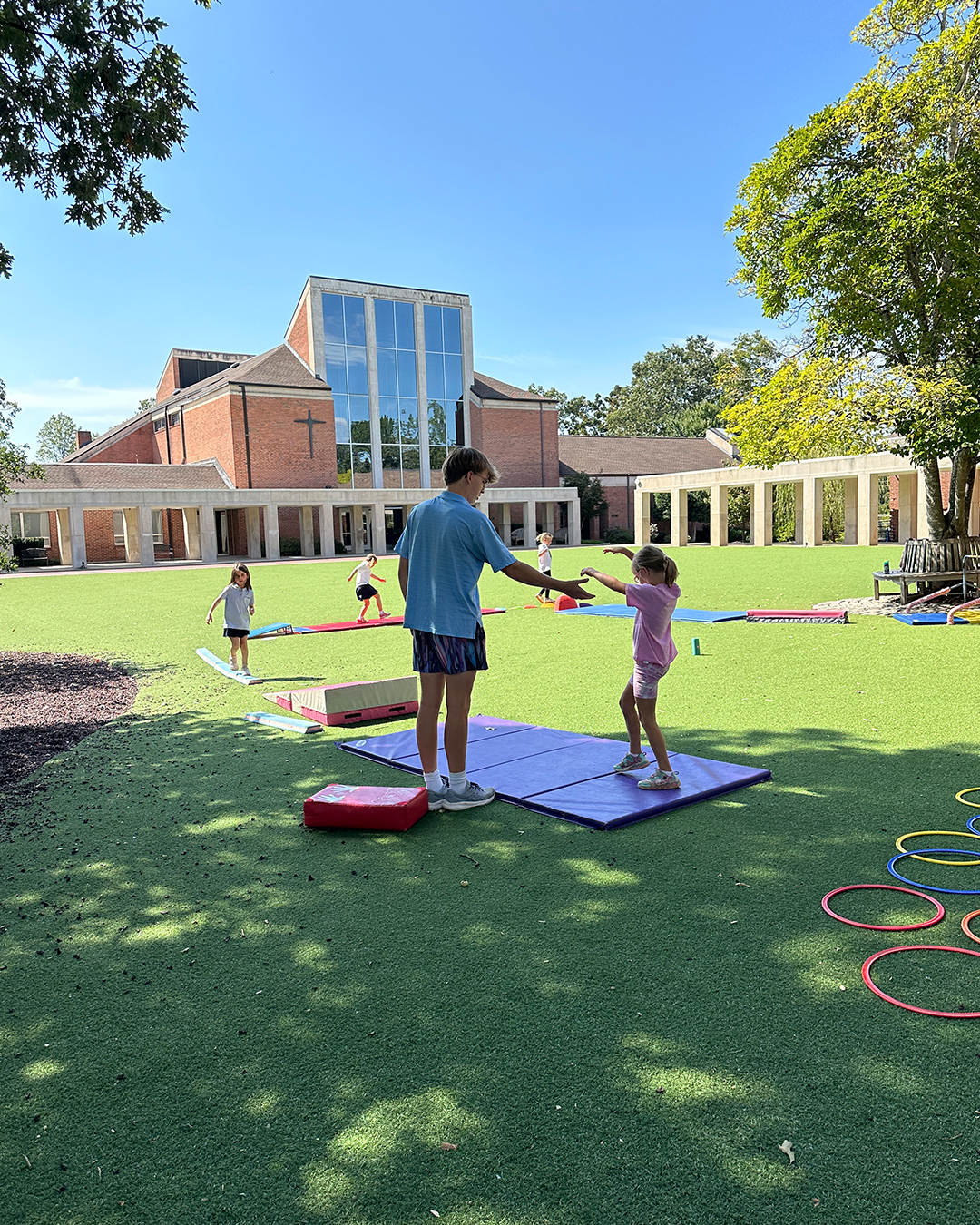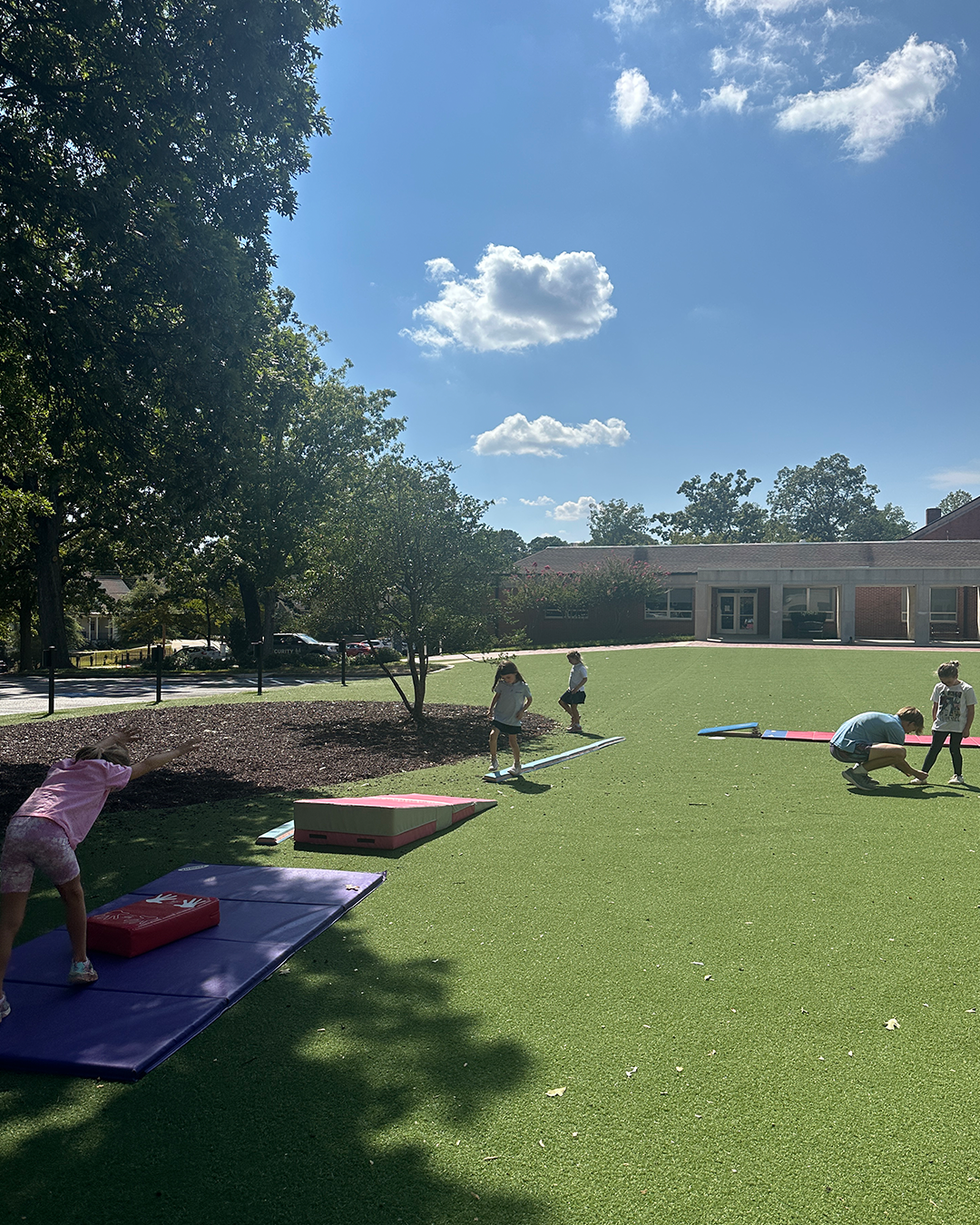At Mount Vernon, learning is not confined to textbooks or classrooms—it is designed with purpose, for people. Our students are taught to ask questions, uncover needs, and create solutions that make experiences better. This is the heart of design thinking: designing for the user.
That mindset is alive this MOD as Upper School students step into internships and jobs across campus. These aren’t just résumé-builders. They are opportunities to improve the experiences of Mount Vernon students and families—right here, right now—while giving our Upper Schoolers authentic responsibility and leadership.
Learning by Doing, Leading by Serving
For Payton Melan, the Made in MV Store is more than a retail space. It’s a living laboratory where Payton is rethinking how a store can best serve its users—whether that’s a parent popping in for spirit wear or a student grabbing a water bottle.
“I’ve gotten to see how important inventory really is—tracking what’s in stock, what sells, and what people are asking for. I’ve also learned how new products are tested and added, which makes me think differently about how a store grows and improves.” — Payton
Meanwhile, Michael Fennelly is harnessing creativity in the Lower School Maker Space. Designing for younger learners requires empathy and flexibility — Michael is learning how to adapt projects so children can experiment, take risks, and celebrate discovery.
“I used to think teaching was just explaining. Now I realize it’s about helping kids explore and letting them figure things out their way.” — Michael
And for Kirsten Abbott, the world of construction and design is coming alive through a unique partnership with Integra Construction and the Let’s Do This initiative. Here, designing for the user means translating bold ideas into spaces that are functional, inspiring, and truly serve the people who will learn and work within them.
From Sports Management to Strength Training
Athletics internships also show the power of designing for the user. Brooke Nazarian is exploring the business side of sports management with Jenn Brown, where success hinges on understanding what athletes, coaches, and fans need for a thriving program and thinking forward about new ideas to elevate experiences.
Retta Duckett is blending entrepreneurship and community engagement in partnership with Cocoa Classic, shaping the 2026 race experience (mark your calendar, it will be February 14, 2026, right here at Mount Vernon) that bring people together around shared passions.
In athletics administration, Rayne Randle and Hammie Shiver are working directly with Lamar Howard to design behind-the-scenes systems that keep teams running smoothly—always with student-athletes in mind. Patrick Still is helping with game-day operations, field and venue set up, as well as diving deep into strength training with Coach Kevin Thomas, discovering how to tailor programs that meet athletes where they are and help them grow stronger, safer, and smarter.
“Coach Thomas is showing me how strength training isn’t one-size-fits-all. You have to think about each athlete and what works best for them.” — Patrick
Leadership on the Lower Campus
Some of the most visible impact is happening through the Extended Play “runners” program on the Lower Campus. At first glance, it might seem simple: picking up children, delivering snacks, or helping with transitions. But look closer, and you’ll see design thinking in action.
Nuna Adovor, Aubree Brown, Carlee Casey, Collins Haber, Anna Hollis, Ryanne Kelly, Jewel Mayfield, Lily Moriarty, McKinley Tann, Holt Dimmock, and Benjamin Borgtede are designing experiences for younger students every time they step outside. Whether it’s joining a game of four square or walking a child to class, they’re asking: What do these younger learners need to feel safe, connected, and joyful?
“The kids light up when we play with them. It reminds me how important it is to just make people feel seen.” — Jewel
Impact Here and Now
What ties all of these experiences together is immediacy and empathy. Our Upper School students aren’t just filling roles—they’re shaping them with the user at the center. Each internship is a real-world application of Mount Vernon’s design thinking ethos: start with questions, listen deeply, and create solutions that matter.
Every job, every project, every moment of connection is a building block in a student’s Journey of Purpose. It’s proof that when students are trusted with real responsibility, they rise—not only preparing for what comes next, but shaping what is possible today.
At Mount Vernon, the future isn’t a distant goal. It’s unfolding right in front of us. And it’s being built by the hands, hearts, and minds of our students.
